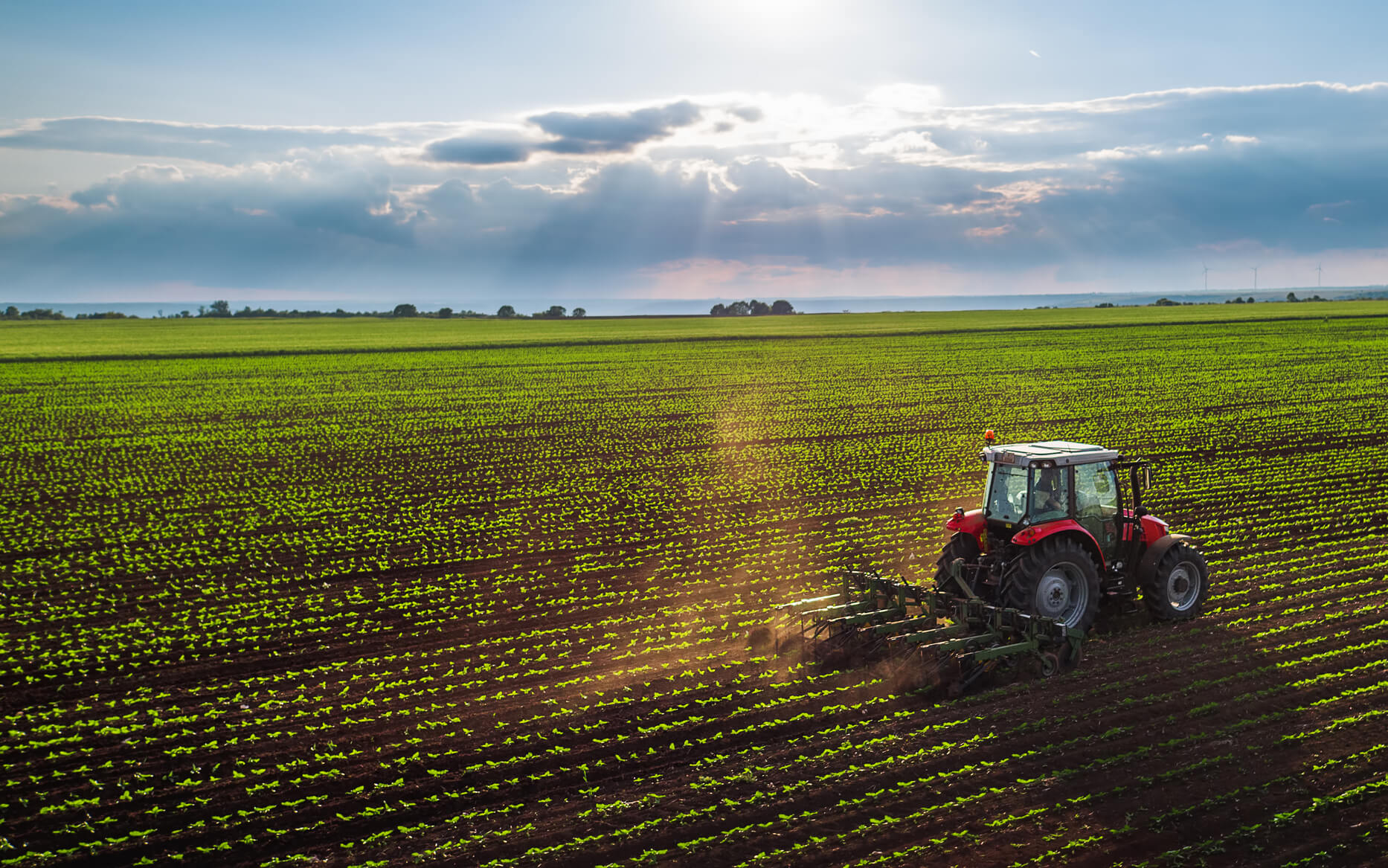
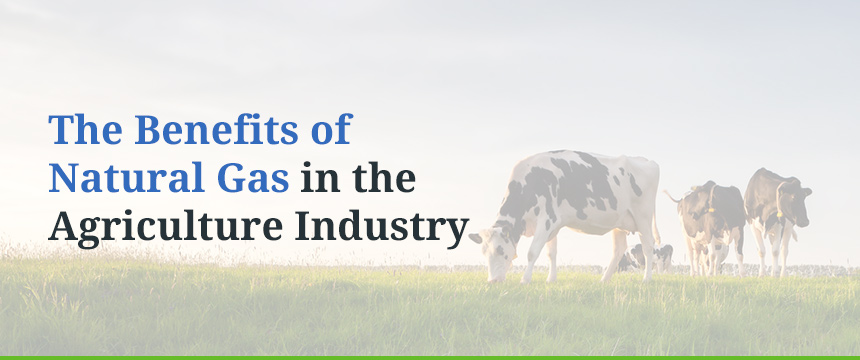
For the past century, fuel has been a driving force in the agriculture industry. As prices rise on imported oil, American farmers are turning to domestically-sourced, reasonably-priced fueling alternatives. Chief among these options is natural gas and compressed natural gas (CNG), which offer many agricultural benefits.
Enter your contact details, we’ll guide you to a solution, so you can get back to running your farm!
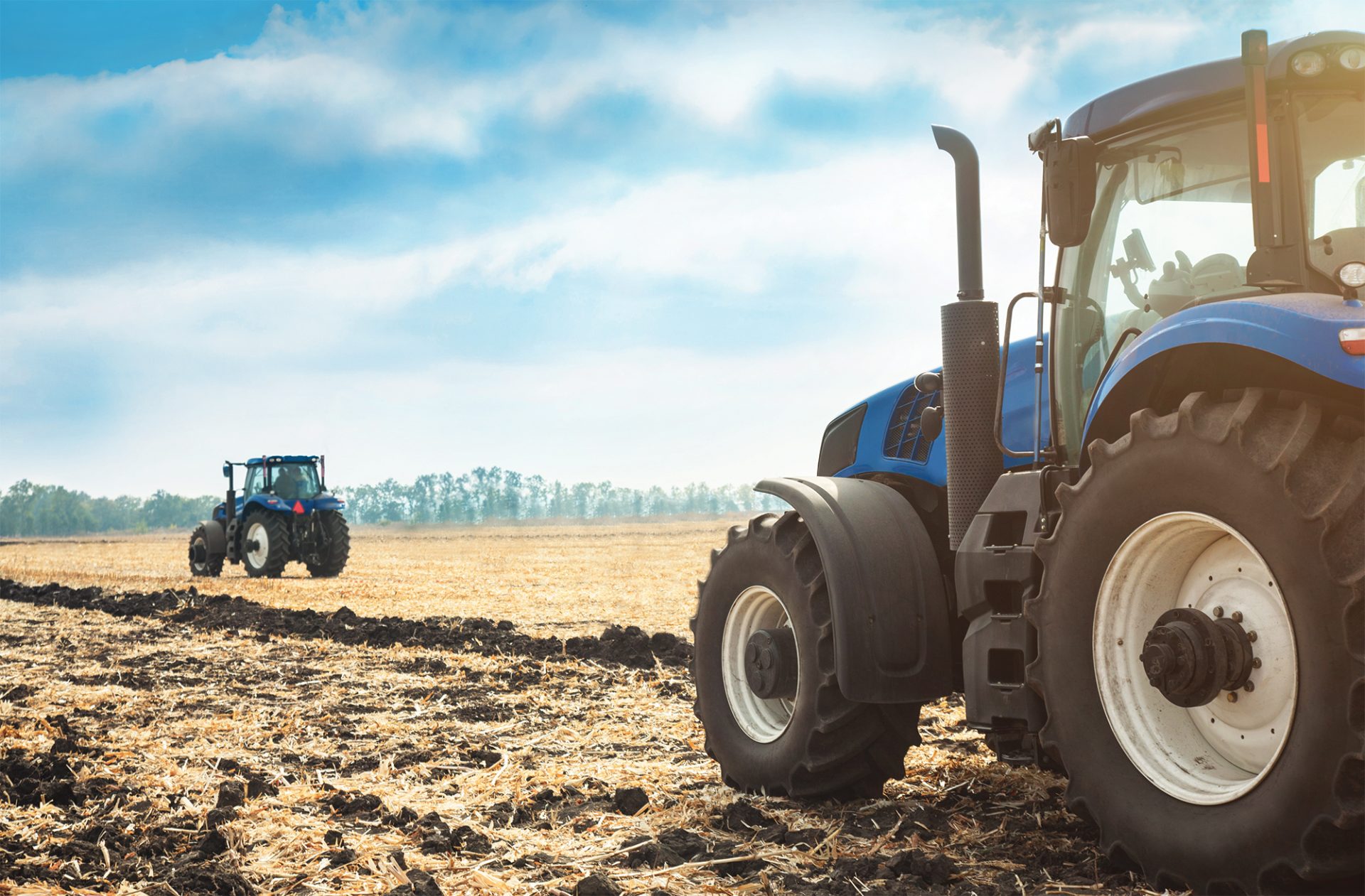
The popularity of natural gas in the agricultural industry has been spurred by the need to reduce fuel consumption levels and overhead costs. It all boils down to the following factors:
Agriculture is one of the most energy-consumptive sectors in the global economy. The vast majority of energy used at farms is derived from fossil fuels. In 2012 alone, the U.S. agricultural industry consumed 800 trillion British thermal units (Btu) of energy, enough to power a medium-sized state. While there have been steps to reduce energy consumption in the way of solar panels, the option only works under certain weather conditions.
Due to the unpredictable nature of the fuel market, it is crucial for entities in the agriculture industry to lock down the lowest rates possible on natural gas and other types of fuel. Often, farms end up paying unpredictable rates as market prices rise and fall on fuel. For the 41 percent of farms that account for more than 90 percent of agricultural productivity and energy consumption, fuel prices — which account for 15 percent of agricultural costs — are a major overhead concern.
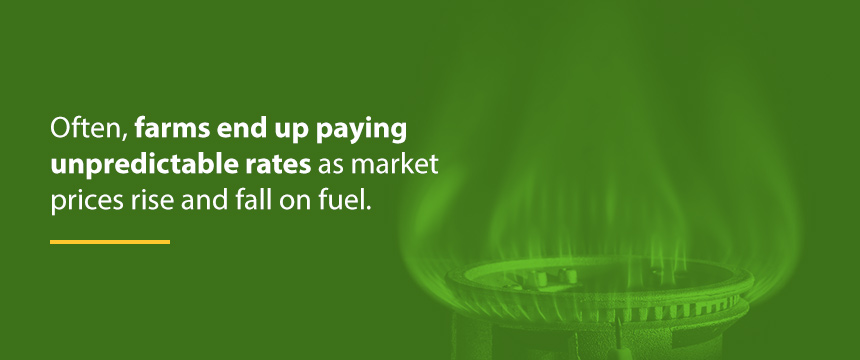
The search for efficient and reasonably priced fuel options has given rise to natural gas as the go-to fuel for agricultural operations.
The benefits of natural gas in the agriculture industry extend across every stage of food cultivation, harvesting, and delivery. From the time that the soil is first tilled and fertilized to the moment where fruits, vegetables, grains, meats, and dairy products arrive at supermarkets, natural gas has become the primary fuel of choice for the irrigation systems, farming equipment and transportation vehicles that drive agricultural processes.
Natural gas powers both the machinery that produces fertilizers for soil and the tools that spread these products over acre-upon-acre of the nation’s farmlands. Fertilizer promotes healthy soil and plentiful crops, helping everything from fruits and vegetables to grains and legumes grow to their mature harvesting stage.
By aiding the production and application of fertilizer, natural gas is largely responsible for the harvesting of foods that the public consumes daily. Natural gas has made the process of fertilization less costly, more efficient and friendlier to the environment.
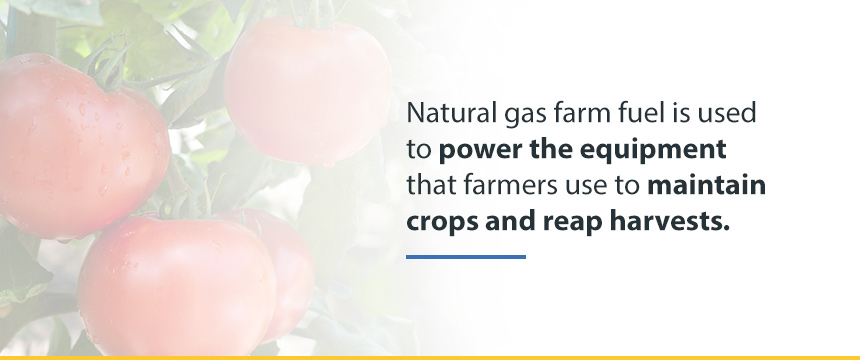
It may sound strange, but natural gas farm fuel is sometimes used to power the equipment that farmers use to maintain crops and reap harvests. One farmer modified his equipment to run using a combination of natural gas and diesel to drive back and forth across vast acreages.
Natural gas is used to fuel the heating systems in the homes of families that live on farms. With natural gas, families enjoy reliable supplies of heat throughout the colder months. If a storm occurs and the electricity goes down, these families remain warm because their heating systems do not rely on electrical power. On farms situated in remote areas, natural gas can also be used as a power source for cooking appliances and other household functions.
Natural gas is an efficient source of energy for the irrigation systems that water vast stretches of farmland. On a large acreage of farming land, the irrigation infrastructure can be quite massive and consume large amounts of electrical power. This can make the farming process more expensive and raise costs along the supply chain. With natural gas, irrigation becomes less costly and wasteful. Natural gas helps to ensure the irrigation of crops, even on days when power is down, and the crops might otherwise starve for water.
For crops that are cultivated under regulated conditions, compressed natural gas is used to power the heating systems that make the process possible. For products like lettuce, spinach, carrots, herbs, and other fruits and vegetables that are often grown inside of greenhouses, CNG can be a great choice.
For grain to be stored through warmer months, it needs to be dried. Drying all of that grain takes a lot of energy. Whether its done directly on the farm or at a processing plant, thanks to low prices and expanded availability, natural gas has also become an affordable option for grain drying.
The final step for the agricultural industry is one of the most fuel-consumptive of all — shipping foods to supermarkets and restaurants. For the ships and trucks that move these foods to their intended locations, compressed natural gas serves as a clean-burning, energy efficient, low-emitting, and relatively inexpensive alternative to other types of fuel.
The routes that these ships and vehicles travel are often long, and huge amounts of greenhouse gases could potentially be emitted in the process. By using compressed natural gas, food-shipment companies are doing their part to help reduce the nation’s carbon footprint.
Enter your contact details, we’ll guide you to a solution, so you can get back to running your farm!
Natural gas is preferable as an energy source because it is more efficient than diesel, cleaner-burning than coal, and more abundant and reasonably-priced than imported fuel types.





For more than 90 years, Shipley Energy has been the leading provider of fuel for farms in select counties of Pennsylvania and Maryland. We partner with farms in the area to ensure a smooth transition to natural gas. Whether you are new to natural gas or looking for a new supplier, we offer the following services:
It is crucial for every agricultural outfit to have a fuel supply at all times. Fuel is necessary to ensure continued operations. Natural gas is one of the most reliable fuel types in this regard because of its abundance and efficiency. Moreover, natural gas keeps operations running, regardless of incidents on the local power grid.
The team at Shipley Energy is always ready to deliver fuel to any location within our areas of coverage. Whether you need a full or partial refill, we will send our fuel truck to your location at any hour, seven days a week. We even do emergency calls in the dead of night for those times when the unexpected occurs.
With Shipley Energy, you never have to endure lengthy waits for fuel service because we have delivery trucks that can be at your location the same day.
Farms run the gamut from small to massive, depending on the number of crops harvested, livestock herded, and acres covered. As such, each farm has its own fuel needs based on the size and scope of the operations at hand. To ensure sufficient fuel supplies, farms need a range of fuel storage options.
At Shipley Energy, we work with each farmer to determine the best fuel tank solution for the farm in question. If you operate a small farm, we will help you select a tank that best suits your needs, whether you plan to use the fuel for irrigation, heating, farming equipment or all three. If you run a larger farm, we can supply you with a tank of sufficient capacity for the uses you have in mind.
If the time has come to replace your current fuel tank, we could fit you with a close replacement or something of a different size. In fact, this could be the perfect time to reevaluate your options in terms of tank size and fuel type. You might even consider extending your use of natural gas to other operations that have run on coal or propane, in which case we will happily assist in your transition.
Farming equipment relies on fuel. Whether you are on the farm or in transit between a delivery stop, you could find yourself in situations where the vehicle simply runs out of fuel. At times like these, it is crucial to have a fuel delivery service on call to refuel the vehicle.
Shipley Energy provides natural gas, propane, diesel, and other types of fuel for a full range of farming equipment, from mowers and tilling machines to tractors and irrigation systems.
At Shipley Energy, we provide fuel-filling services and tank deliveries to farms of all sizes in various parts of Maryland, Ohio, and Pennsylvania.
Over the years, we have serviced harvesters of fruits, vegetables and grains, as well as herders of cattle, swine, and fowl. Vast quantities of produce, meat and dairy are produced, transported and ultimately made available to consumers in these communities thanks to the fuel services that we provide. You can count on the Shipley Energy team for expert-grade service and speedy delivery each time you need a replenishment of your fuel supply.
If you currently use compressed natural gas or plan on switching to CNG, we will happily assist in converting your operation to this efficient fuel product.
Contact Shipley Energy to learn more about commercial natural gas services for the agriculture industry, specifically farm fuel delivery, fuel storage tank solutions and equipment fueling.